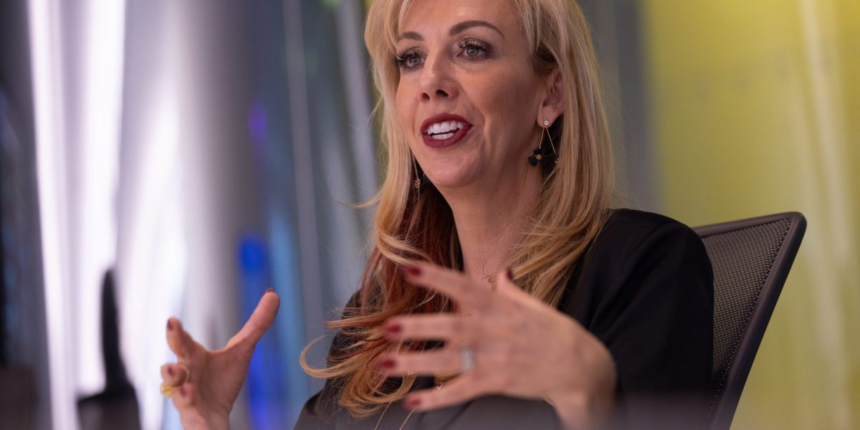Last year, the tussle briefly appeared to be over: A federal judge in the Northern District of Ohio agreed to dismiss the case because the plaintiffs failed to show that Roberts would have won the grant if the competition for it had been race-neutral. In legal terms, he didn’t have “standing” to bring the case, a finding related to a couple of specifics about the situation. (For one, Roberts didn’t apply for the grant during the application window and sued the company only after the window closed.)
But America First Legal appealed that decision, and in late July the lawsuit came before the Sixth Circuit appellate court in Cincinnati, where the AFL again argued their client suffered an injury because he wasn’t able to apply for the grant.
Now, based on the discussion before a three-judge panel at the Sixth Circuit, it appears that the Hello Alice lawsuit will solidify a reliable, if unsexy tool that companies can use to defend against claims of reverse racism in anti-DEI campaigns: arcane rules and technicalities.
For years, corporations have used procedural grounds to evade charges of discrimination in employment-related lawsuits brought by people of color, women, LGBTQ+ employees, and others. The Hello Alice case may show that companies can successfully protect themselves against politically motivated anti-DEI lawsuits the same way.
“We were really gratified by the court’s questions,” Neal Katyal, a prominent attorney who leads the Supreme Court and appellate practice at the Washington, D.C. law firm Milbank, and is representing Hello Alice, told Fortune. Indeed, many of those questions definitively zeroed in on procedural issues. (The court asked, for example, what about Hello Alice’s terms and conditions prevented the AFL’s client from applying for the grant.) “They obviously had read everything and asked exactly the right questions. And we very much look forward to the Court’s resolution of this case.”
The outcome of the Hello Alice case may also signal to businesses that they don’t need to preemptively roll back programs for marginalized groups out of fear.
AFL did not immediately respond to a request for comment. Fortune attempted to reach Freedom Truck Dispatch but found a phone number listed for the company was out of service.
Since Hello Alice got off the ground a decade ago, Gore says, the company has served 1.6 million small businesses, helping them secure loans and benefit from a wealth of information and resources. “We have all the financial planning software they need to build their business plans,” Gore explains.
The cofounders also spend part of their time advocating for small business owners and raising funds for philanthropic grants. To date, Hello Alice has issued $60 million in small grants across the U.S., according to Gore. “Part of our commitment since day one was to ensure that small businesses who have some kind of barrier to entry, that we dig in and ensure they’re part of the platform,” she says. The company has helped veterans, for example, and women who’ve been in the care economy, both groups of people who may not have the credit histories needed to launch a company.
Whether the Hello Alice case will answer larger questions about DEI’s legality remains to be seen. “Initially, this case presented the big question: Can affirmative action be permissible in the corporate setting?” Katyal explained. “But the trial court said that the plaintiffs didn’t even get to ask that question. They weren’t allowed to because they didn’t meet the legal requirements to be able to bring a case in federal court.” Now, says Katyal, the question before the Sixth Circuit is, “‘Can someone try and complain about a program to give grants to minority-owned businesses when they can’t even allege they would have gotten the grants anyway?’”
As the legal battle has played out for Hello Alice, Gore has found support from friends and clients across the political spectrum. “We’re based in Houston, Texas, and [there’s a large] amount of folks who you would think would be against us, and they weren’t,” she said, adding, “Think traditional white male biker companies and trucking companies.”
Gore says the business owners who have discussed the issue with her—whether they identify as Republican or Democrat—don’t think the government should be telling businesses how to deploy their money. That’s what her legal team believes, too: Private businesses should have the freedom to run or reject affirmative action programs like the grants for Black businesses. Whether such DEI initiatives are good for a company, morally justified, or, as the AFL claims, racist, should be debated in a boardroom and not in a federal court. And there is nothing inherently illegal about a private company offering a grant dedicated to a minority population.
Lately, many companies have rolled back cohort-specific DEI programs just to avoid the kinds of costly headaches that Hello Alice has faced. Kenji Yoshino, a constitutional law professor at NYU School of Law and director of its Meltzer Center for Diversity, Inclusion, and Belonging, believes that’s the right approach for our times.
Yoshino explains that his center has been “beating the drum on moving from cohorts to content.” That is, he suggests companies make programs such as diversity-focused fellowships in the workplace available to anyone who wants to apply, without changing the ultimate mission of the fellowship. “That really allows a company to do an end run around the SFFA decision,” he says.
At the same time, he applauds Gore for sticking with her program for Black business owners and preparing to advance not only the technical argument in the lawsuit—showing that the white male trucker doesn’t have the ground to sue—but perhaps much more. Beyond questions about the original intention behind Section 1981, or whether these grants constitute a contract, there’s that more complicated question about First Amendment rights that has yet to reach the country’s highest court.
The night before the Sixth Circuit oral arguments, she had dinner at a restaurant near the courthouse in Cincinnati. It turned out that the restaurant, Frankie’s, was a Hello Alice customer. For Gore, it was a reminder of the importance of her work. In heavy times, she says, “it gave me levity.”









